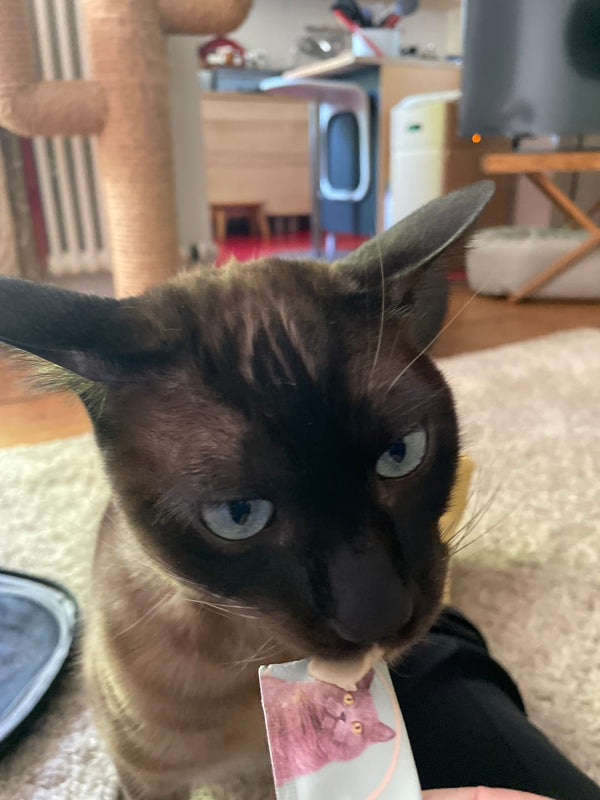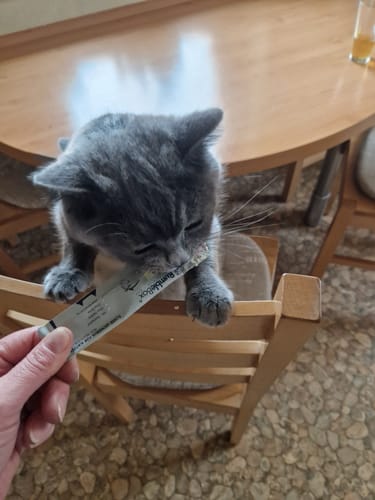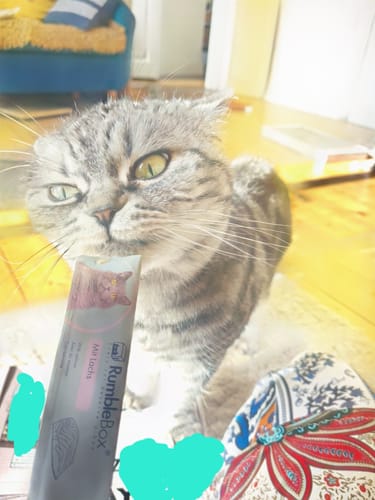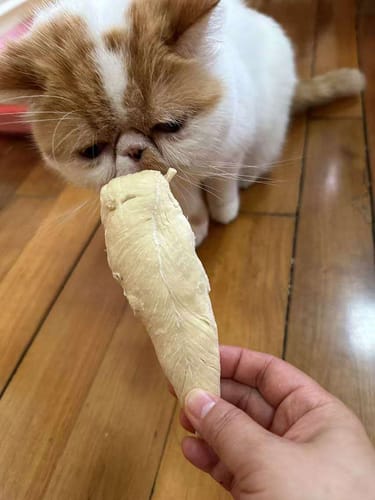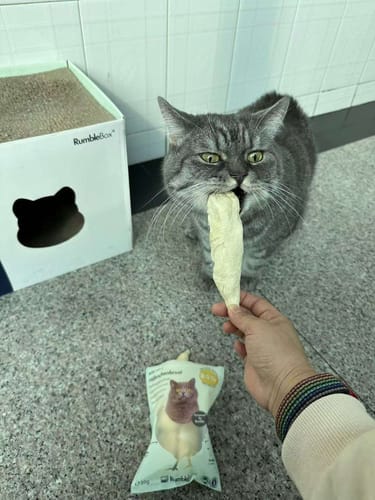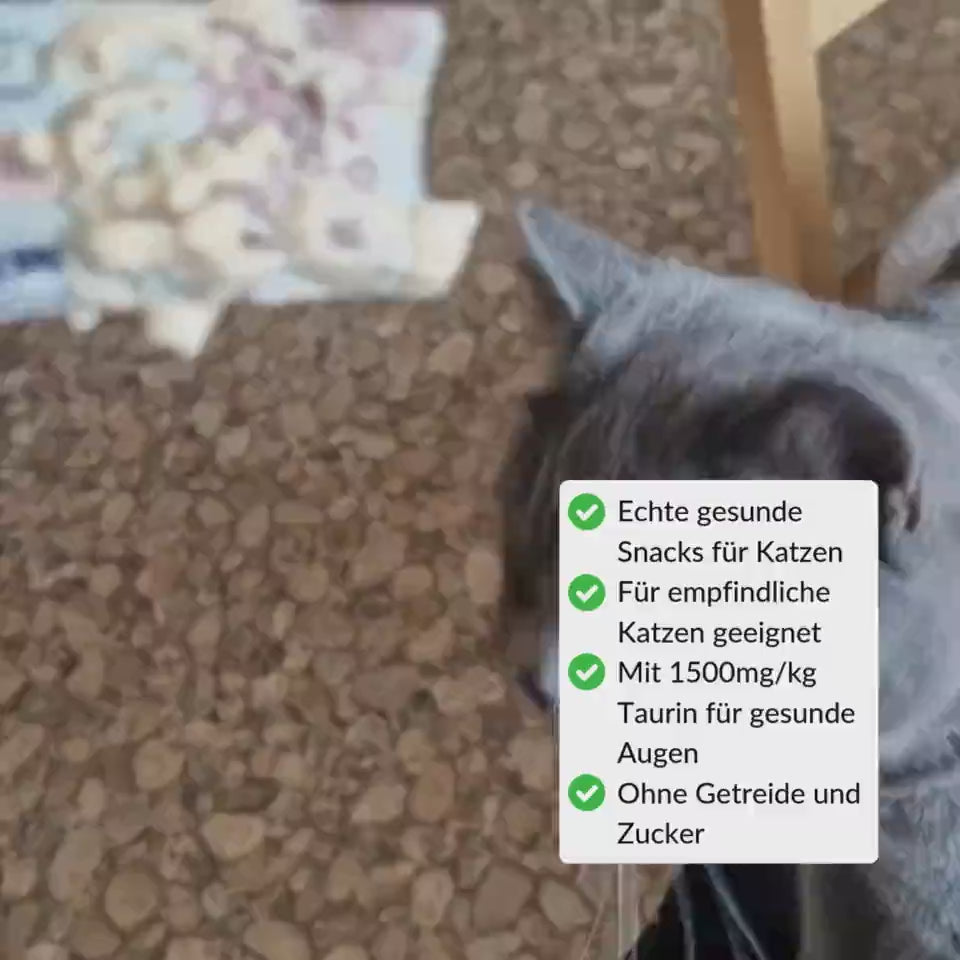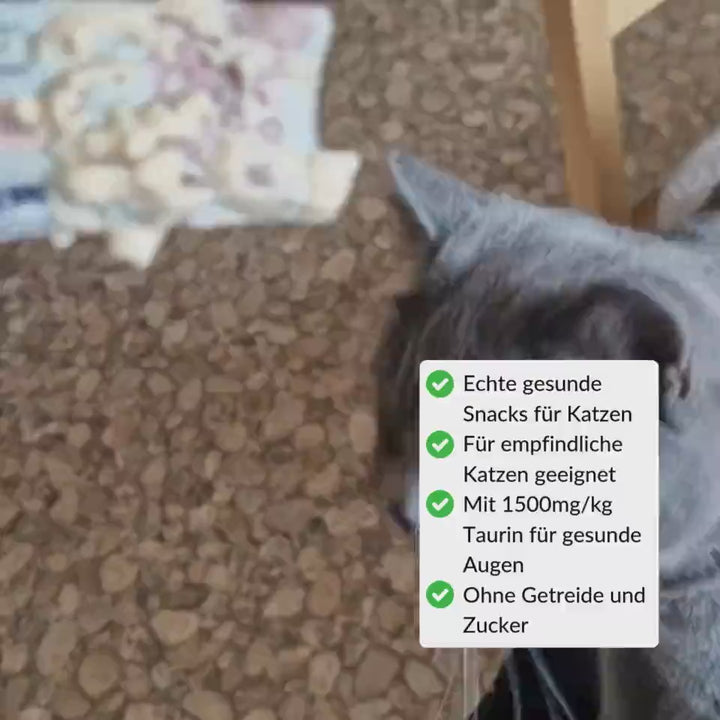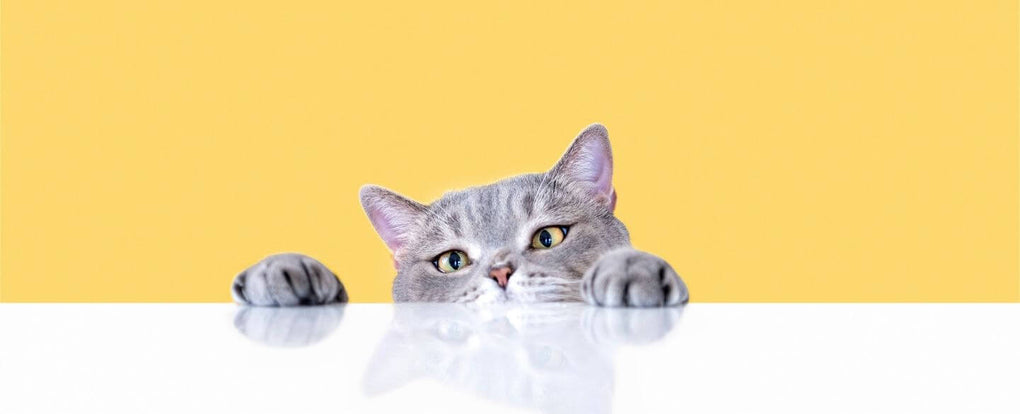Cat Pheromones: How They Can Help Your Cat
What are cat pheromones?
Pheromones are chemical messengers produced by cats. They are secreted by special glands, such as:
-
Facial glands: When your cat rubs its head on furniture, it releases calming pheromones that make it feel safe.

-
Paws: When scratching objects, your cat releases pheromones to mark its territory.

-
Urine : Cats use their urine to mark boundaries. They use it to send messages to other cats.

These substances are invisible to humans and mostly odorless. However, cats can detect them very well.
Why do pheromones affect cats?
Cats absorb pheromones using a special organ: the Jacobson's organ , which is located in the palate.
- This organ enables the scents to be transmitted directly to the brain.
- Depending on the pheromone, this can trigger different reactions:
- Some pheromones have a calming effect and help reduce stress.
- Others stimulate the cat , making it more active or alert.

Is your cat stressed?
Cats show stress in different ways. Here are some typical signs:
- Aggressive behavior: Sudden aggressive behavior toward people or other animals.
- Increased hiding: Your cat retreats to dark or secluded places.
- Uncleanliness: She urinates outside the litter box.
- Excessive meowing: Meowing loudly or more frequently than usual.
- Scratching furniture: Especially in new or unusual places.

If you observe these behaviors, pheromones can be a good first step to help your cat.
When can cat pheromone help?
You can use cat pheromones in many situations. They help reduce stress. They also promote your cat's well-being.
- When moving: New places can be very unsettling for cats. Pheromones create a familiar atmosphere and make it easier to settle in.
- When visiting the vet: Transport and unfamiliar surroundings stress many cats. Pheromones can reduce stress.
- New Year's Eve and loud noises: Fireworks or parties with lots of guests are often frightening for cats. Pheromones can help reduce fear.
- Household with several cats: Tensions between cats can often be defused by pheromones.
- Renovations: Changes in the home can irritate cats. Pheromones give them a feeling of stability.
Natural Alternatives to Stress
In addition to pheromones, there are other ways to promote your cat's well-being:
- Create places to retreat: Cats need quiet places where they feel safe.
- Fixed routines: Regular feeding and play times give your cat security.
- Play and exercise: Interactive games promote self-confidence and reduce stress.
- Catnip: Although it does not contain pheromones, it has a calming effect on many cats.

- Silver Vine: Also known as Matatabi. It works similarly to catnip and may have a stronger effect on some cats. It is a good alternative, especially for cats that do not respond to catnip.
Pheromones in Kittens: A Good Start in Life
The first weeks of life are crucial for kittens. During this phase, they learn to orient themselves, build trust and form their first social bonds.
Mother cats play an important role. They release "appeasing pheromones". These pheromones calm their kittens. They also strengthen the bond between mother and kitten.
How pheromones promote kitten development:
- Calming: These pheromones ensure that kittens stay calm, feel safe and can sleep relaxed.
- Bonding with the mother: They strengthen the bond between mother and kitten.
- Growth and learning: A stress-free environment makes it easier for kittens to learn and explore their surroundings.
Pheromones during separation from the mother:
- When kittens are separated from their mother, synthetic pheromones can help alleviate this stressful situation.
- Synthetic pheromones can help simulate the usual security of mother pheromones.
- They help your cat to feel comfortable in a new home. They reduce problems such as anxious meowing. Your cat also hides less.
Tip: When you bring a new kitten into your home, use pheromone diffusers and Feliway to help ease the transition. Make sure the kitten has its own place to retreat to where it feels safe.
Pheromones in Older Cats
Older cats often face new problems. They are more sensitive to changes. This makes them more susceptible to stress. Ailments such as joint problems or poor hearing can make them even more insecure.
Why older cats are more susceptible to stress:
- As cats get older, they become less flexible, both physically and mentally. Changes such as moving, new furniture or loud noises can put more stress on them.
- When cats' vision or hearing deteriorates, they become insecure. These changes can trigger fears.
How pheromones can help older cats:
- Alleviating insecurities: Pheromones give older cats a feeling of familiarity, even when their environment changes.
- Promote well-being: They help reduce stress hormones and promote relaxed behavior.
Tip: Use pheromone products specifically when you are planning changes that will affect your older cat, such as a renovation or new family members.
Limits of Cat Pheromone
Pheromones can be a great help for cats. But they have their limits.
No substitute for the veterinarian:
- Pheromones cannot solve all problems. If your cat shows significant behavioral changes, such as sudden marking or constant meowing, you should consult a veterinarian.
Not every cat reacts the same:
- Some cats feel the effect immediately. Others need more time or barely react. Watch how your cat reacts.
Only suitable for certain situations:
- Pheromones help with stress, for example when moving house or loud noises. For long-term problems, such as aggression or fear, they alone are often not enough.
Conclusion
Pheromones are a natural help for cats. They make your cat's life more relaxed. They are useful when moving, making noise or fighting with other cats. Combined with a loving home, you create the best conditions for a happy cat life.
Thank you for reading this far – it really means a lot to us! We hope you found something useful and maybe your cat is already looking forward to a little something extra. See you soon and lots of purrs!
By the way
Many cat owners pay close attention to the ingredients in their cat's main food , but often forget about treats .
Snacks often contain sugar, grains and artificial additives that can be harmful to health in the long run.
Anyone who truly wants to feed their cat a completely healthy diet should also rely on natural ingredients here:
Hypoallergenic treats without additives – naturally from RumbleBox. Perfect as a reward, during training, or simply as a snack.
Over 2,500 cats have already switched to healthy snacks!
💚






